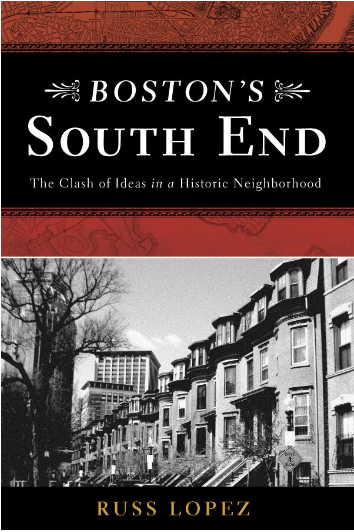At #BUCPUA, acclaimed researcher shares the latest health impacts from urban sprawl

On July 20, Dr. Russ Lopez, PhD, an adjunct assistant professor at the Boston University School of Public Health, visited BU City Planning and Urban Affairs (BUCPUA) students in Felix Zemel’s UA 510 Course, Public Health and the Built Environment. As a researcher, Lopez has spent nearly two decades exploring how the built environment has affected public health.
“How do we know the things we know? What are planners doing wrong today that they may regret in the future?” Lopez asked the future city planners.
Lopez walked students through the history of public health in the urban environment, describing the unsanitary conditions in tenements, the perceived promise of suburbia, and the recent revitalization of urbanism. Moreover, Lopez revealed the data sources used to measure public health impacts, ranging from photographs and child mortality rates to property tax records and income disparities by zip code. However, Lopez cautioned that public health research remains daunting, particularly if health and behavioral data lacks variation within census blocks.
“Research shows that urban sprawl has played a role in the risk of obesity, frequency of traffic accidents, and convenient access to medical care,” shared Lopez. These factors often lead to more chronic illnesses, including diabetes mellitus, asthma, cardiovascular disease, and cerebrovascular disease.
The recent uptick in urban populations presents systemic design issues for planners. Lopez stated that the percentage of walkable land within cities must increase, attesting that both public transit and jobs should be accessible by walking a mere fifteen to twenty minutes. In turn, the recent growth of cities should jumpstart public transportation improvements that demonstrate increasingly reliable, frequent service. Last, Lopez underscored the financial difficulty of living in an urban environment, such as Boston. He pointed out that the government’s tax systems should help make housing an affordable and convenient option for all.
Aside from teaching at BU , Lopez also instructs courses at Northeastern University. His published research also examines health effects tied to racial segregation and income inequality, the role of neighborhoods in long-term diets and exercise interventions, and the influence of schoolyard renovations on student test scores. This year, Lopez authored Boston’s South End: The Clash of Ideas in a Historic Neighborhood.
– Courtney Thraen (MET’17)
